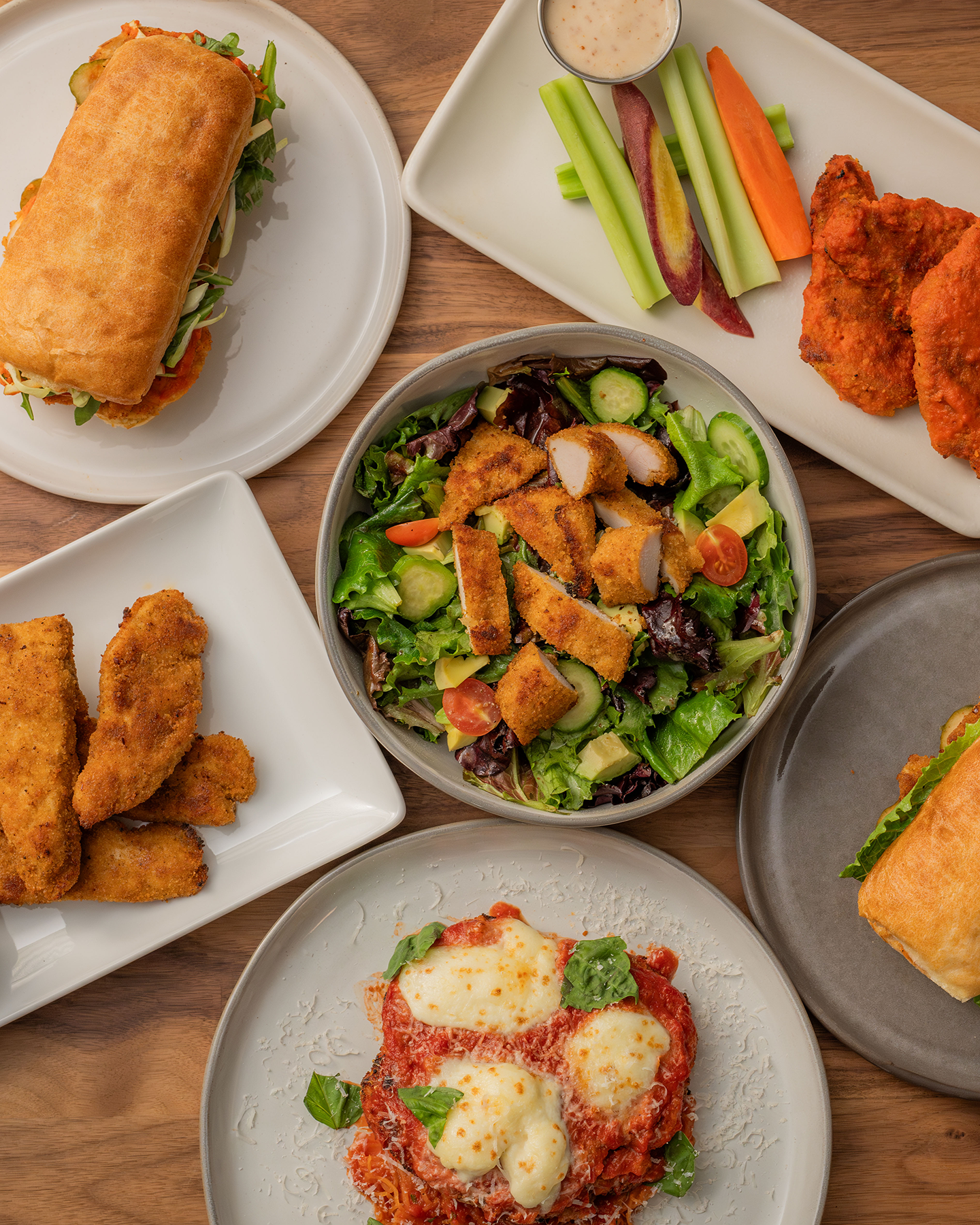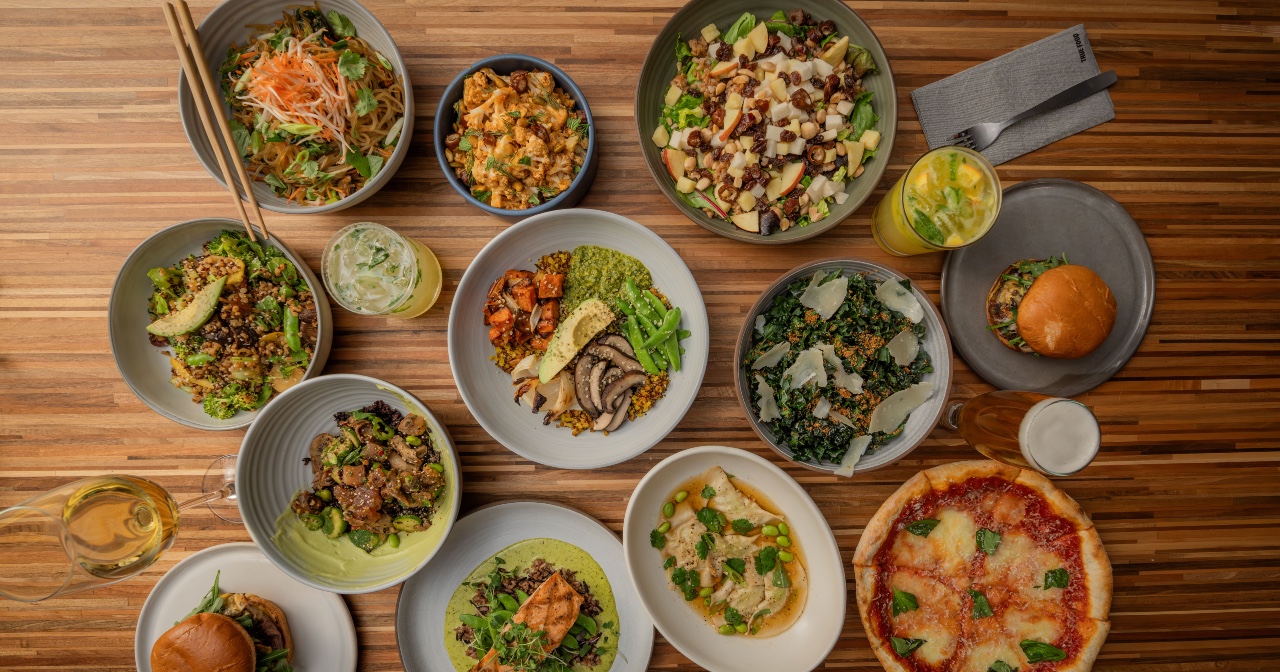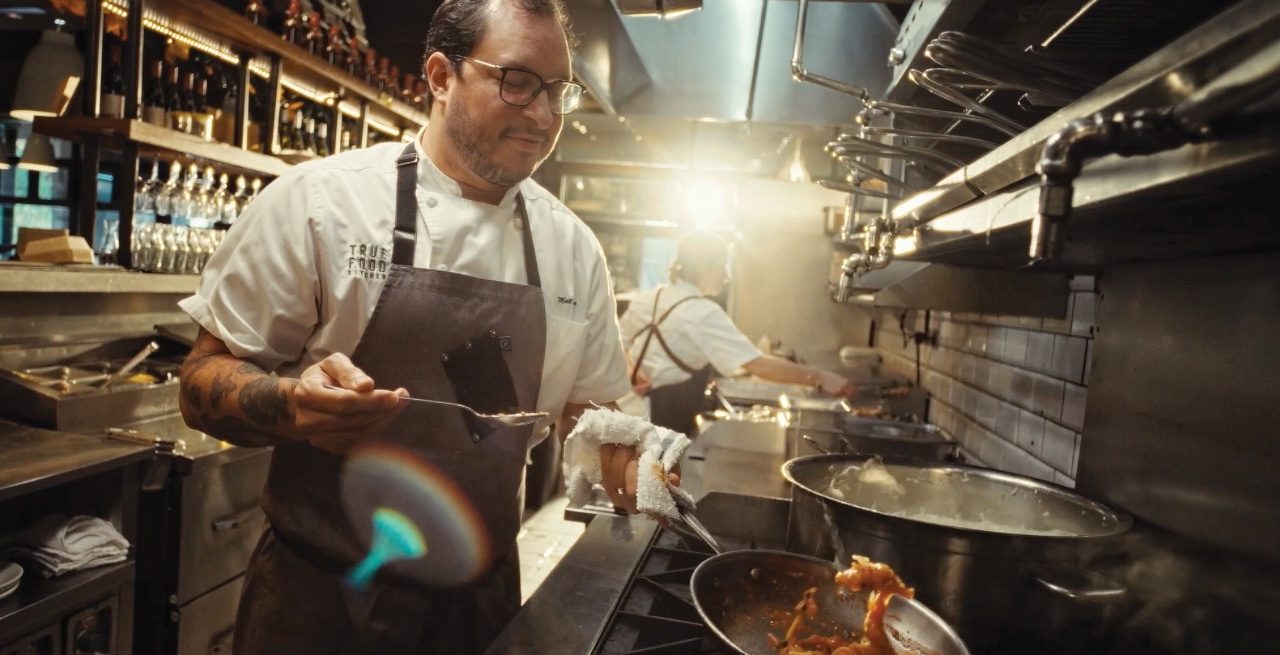A Natural Brand Evolution
5 Min Read By MRM Staff
Health-driven brand True Food Kitchen transitioned its kitchens across all 46 locations in 18 states as well as its entire menu to become 100-percent seed oil-free. As part of a multi-year shift, the brand exclusively uses avocado and olive oils, eliminating industrial seed oils from every ingredient of its 100-plus menu items.
“This isn’t just a trend or a tagline—this is who we are,” said Matthew Padilla, Head of Culinary at True Food Kitchen. "It was a massive undertaking, but it was worth every step to deliver cleaner, better meals to our guests. We’re proud to lead the charge and redefine what health-focused dining at scale looks like.”
To delve more into the process of eliminating seed oils, Modern Restaurant Management (MRM) magazine quizzed Daniella Voysey Olson, Chief Growth Officer.
What was the thought process of making True Food Kitchen 100-percent Seed Oil Free?
At True Food Kitchen, dining without compromise has been our mission for nearly two decades. Making the shift away from seed oils was a natural evolution for us—one that we started back in 2022 and have worked tirelessly to implement across all of our ingredients. By eliminating seed oils entirely, we're reinforcing a commitment we've upheld for nearly 20 years: making food that is as delicious as it is nourishing. We know our guests care deeply about what they eat, and we want them to feel confident that every meal at True Food Kitchen supports their health and wellness goals.
What did the process of removing seed oils from the menu involve and how long did it take to make it scalable across the brand? Please offer some examples of menu items and how they were updated?
This initiative was a multi-year effort that demanded extensive sourcing, innovation, and close collaboration with our culinary team and suppliers. When we removed seed oils from our cooking in 2022, it was a major milestone—challenging, but relatively straightforward from a recipe standpoint. However, eliminating seed oils entirely from every ingredient across our menu proved to be a much more intricate process.
We were surprised by how difficult it was to find everyday ingredients, like dried cranberries, that didn’t contain seed oils. This only reinforced our commitment to doing things the right way—even when it meant developing our own solutions. With every menu cycle, we push ourselves to raise the bar, and this time, that meant refining even the smallest details. Our burger buns are now completely seed-oil free, and we’ve reformulated or sourced alternatives for items like harissa paste to ensure we uphold the highest ingredient standards.

What were some lessons learned along the way?
Revamping our entire menu to be 100-percent seed-oil free was a significant investment—not just financially, but in time, labor, and energy. However, we knew it was the right decision. One of the biggest lessons we learned is just how pervasive seed oils are in the food system. They’re hidden in unexpected places, which meant we had to go beyond just swapping out cooking oils and take a deeper look at every single item in our pantry.
We also learned that making a change of this scale requires strong partnerships. From our distribution centers to our suppliers and culinary team, every stakeholder had to be aligned to ensure we maintained consistency across all of our locations.
We also learned that making a change of this scale requires strong partnerships. From our distribution centers to our suppliers and culinary team, every stakeholder had to be aligned to ensure we maintained consistency across all of our locations. It reinforced the importance of transparency, diligence, and innovation in sourcing.
In a time when guests are looking for value, how does a move to eliminate seed oil use affect the bottom line?
At True Food Kitchen, we’ve always believed that value isn’t just about price—it’s about quality, transparency, and giving guests the confidence that their meals align with their health and wellness goals. While eliminating seed oils required a significant investment, it was a necessary step to stay true to our mission of dining without compromise.
We know that guests are at different points in their health journeys. Some are actively trying to eat clean but struggle to find restaurants that meet their standards. Others have food allergies and need options they can trust. And for those just starting out, we make it easy to enjoy familiar favorites—like our air-fried chicken tenders—without sacrificing flavor or nutrition.
By making this shift, we’re not just improving our menu; we’re meeting the growing demand for real, wholesome food. Guests are looking for restaurants that align with their values, and we’ve seen that when you provide high-quality options that people feel good about eating, they keep coming back.

Notable health sources including the American Heart Association have said there is no reason to avoid seed oils with Harvard noting that restaurant fryer oil could be a concern—What is the medical evidence True Food Kitchen used to make the decision to eliminate seed oils?
True Food Kitchen's Co-Founder, Dr. Andrew Weil has long been vocal on the health risks associated with seed oils like corn, sunflower, safflower, canola, and peanut. Especially when heated, they may promote inflammation and lead to an increase in free radicals. Guests have increasingly voiced concerns about seed oils, and we’ve listened. By making the switch to heart-healthy oils, we’re staying true to our commitment to better ingredients and more nourishing meals.
Guests have increasingly voiced concerns about seed oils, and we’ve listened. By making the switch to heart-healthy oils, we’re staying true to our commitment to better ingredients and more nourishing meals.
Seed oils often require heavy processing and support monoculture farming, which harms soil and biodiversity. Instead, we partner with responsible avocado oil and olive oil producers who use regenerative practices for a more sustainable, transparent food system.
The best thing consumers can do is educate themselves—understanding ingredient quality, sourcing, and health impacts—to make choices that align with their lifestyle and wellness goals. I’m proud that True Food Kitchen continues to evolve its approach to sourcing and production, as health and sustainability are the priority for every ingredient we use.
Tik Tok and other social media platforms are filled with influencers making nutritional claims and receiving millions of views. What role did social media have in the move to eliminate seed oils?
This decision wasn’t about following a trend – it was about staying true to the principles that have guided us from the very beginning. At True Food Kitchen, we’ve always been rooted in nutrition and led with thoughtful ingredient choices, and our move to eliminate seed oils was a natural evolution of our commitment to serving food with integrity. More people than ever are questioning what goes into their meals and looking for restaurants they can trust. While viral conversations may spark curiosity, our focus remains on delivering real, long-term change—not quick fixes.
We started transitioning away from seed oils in 2022 by cooking exclusively with olive and avocado oils, long before it became a mainstream topic online, because we knew it was the right thing to do for our guests. Ultimately, we see this shift as an opportunity to lead by example. Guests can always come to True Food Kitchen knowing that every ingredient choice is made with their health and wellness in mind.
It’s only been a short time, but what responses have the staff been noticing?
So far, the response has been overwhelmingly positive! We received great feedback from our guests when we moved away from seed oils in our cooking in 2022, our guests appreciate our transparency throughout the process. Our guests have come to expect the best ingredients and delicious food that allows them to dine without compromising their goals, this change is no different.

